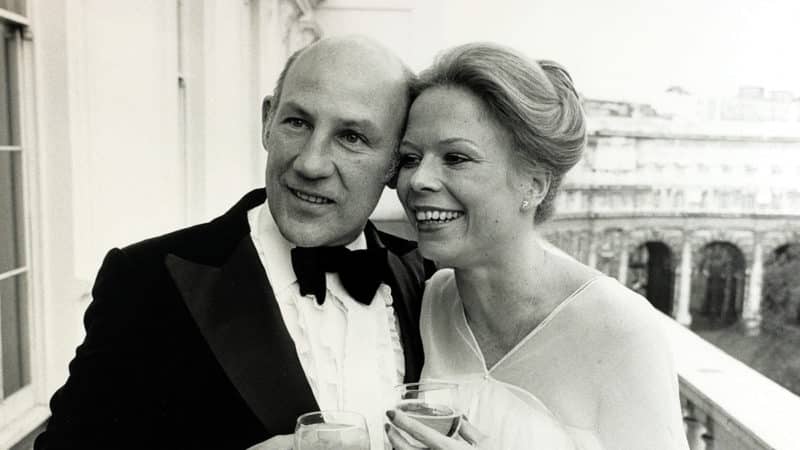Born to Race: Stirling Moss foreword by Lady Moss
Lady Susie Moss reflects on Sir Stirling's incredible life, and his long-standing link to Motor Sport
I am delighted to have been asked to say a few words at the front of this collection of just some of the dozens of stories that have been published in Motor Sport over the years about Stirling and his racing life.
Motor Sport held a special place in Stirling’s heart from long before that famed article by Jenks about their shared exploits on the 1955 Mille Miglia. He never missed an issue if he could help it because it was, is and I hope will always remain ‘The Authoritative Voice Of The Sport’, as it used to proclaim on its cover.
I think Stirling was so fond of Motor Sport because it reflected the values he felt himself. First and foremost, through every issue floods a love of racing pure and simple. Racing is of course made up of cars, drivers, teams and tracks, but it is racing that unites them. Stirling never thought of himself as simply a driver, nor even a racing driver, he was simply ‘a racer’. He was not born to drive or even to win, such matters were almost incidentals; Stirling was born to race.
Which I suppose is why he did so well in so many different fields of motor sport. It really didn’t matter to him whether he was heeled over in a monstrous MkVII Jaguar, or darting from corner to corner in a Lotus 18: what mattered was that he was racing. And like all true racers, he’d drive as hard for first place as he would for 10th, not that he found himself in that position very often…
But it’s more than just that love of racing that Stirling and Motor Sport shared. He also identified with the fact that Motor Sport was as fearless yet fair in its reporting as he was in his driving. For while Stirling won a great deal of races, it was far more important to him that he did so the right way, and with the right team. He’d think nothing of speaking in the defence of his closest rival if he felt there was a wrong that needed correcting. And doing so for Mike Hawthorn at the Portuguese Grand Prix cost himself the 1958 World Championship.

Sir Stirling Moss and Lady Susie Moss
You may also recall that at the very start of his career in 1951 he felt he had been poorly treated by Mr Ferrari and vowed never to race for him. Had he done so he could have been world champion early in his racing life, but for Stirling driving for people he liked and trusted was simply more important, which is why once he found Rob Walker in 1958 he stayed loyal to him to the end.
Now that he has gone to the great grid in the sky and despite it being nearly 60 years since his full-time racing career was so abruptly curtailed at Goodwood, I find it both amazing and truly comforting to see the love that remains for Stirling, not just here at home but right around the world.
And I don’t think you are afforded that privilege just by being a very fast racing driver. You have to make an emotional connection, too. As someone once said to me, ‘it’s not how fast you go that matters, it’s how you go fast’ and Stirling didn’t simply understand that, it was part of who he was as a person. And through the writings of the likes of Jenks and his many successors at Motor Sport, the magazine has played its part in showing the world not just a driver in a racing car, but the fun-loving, honourable and deeply loyal man behind the helmet and goggles whom we all still miss so much.
I hope you enjoy reading his story.
Lady Susie Moss